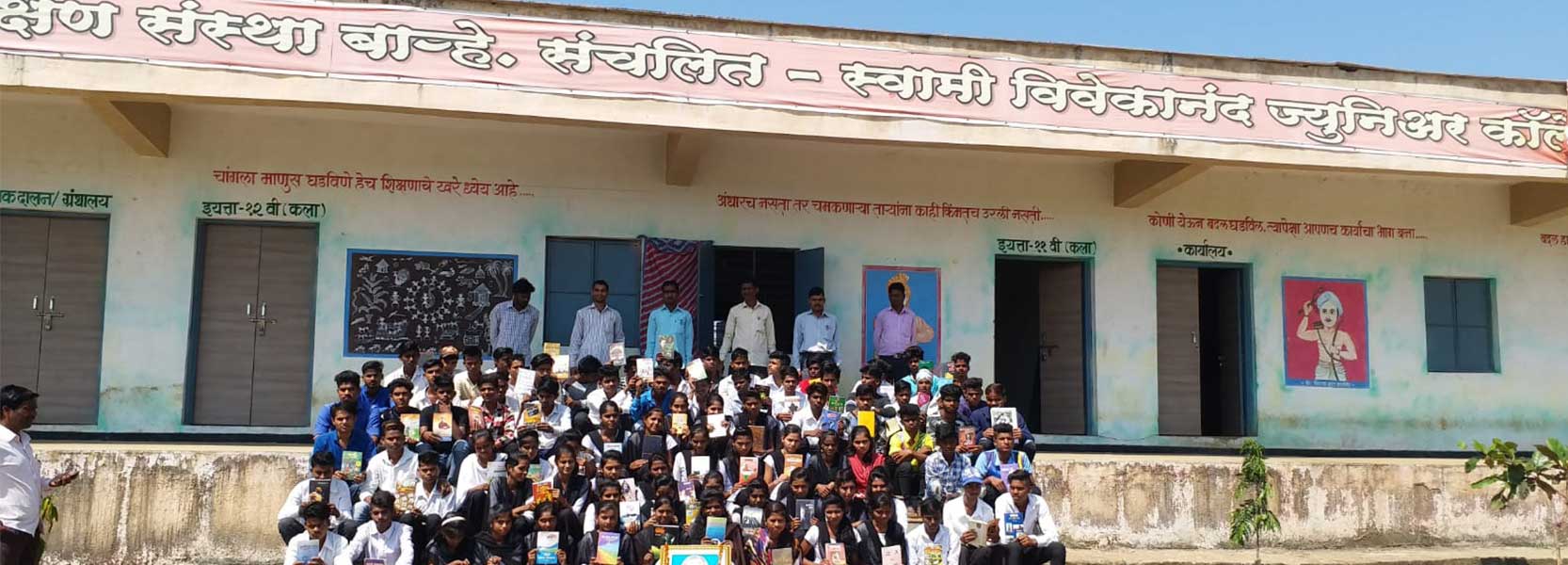
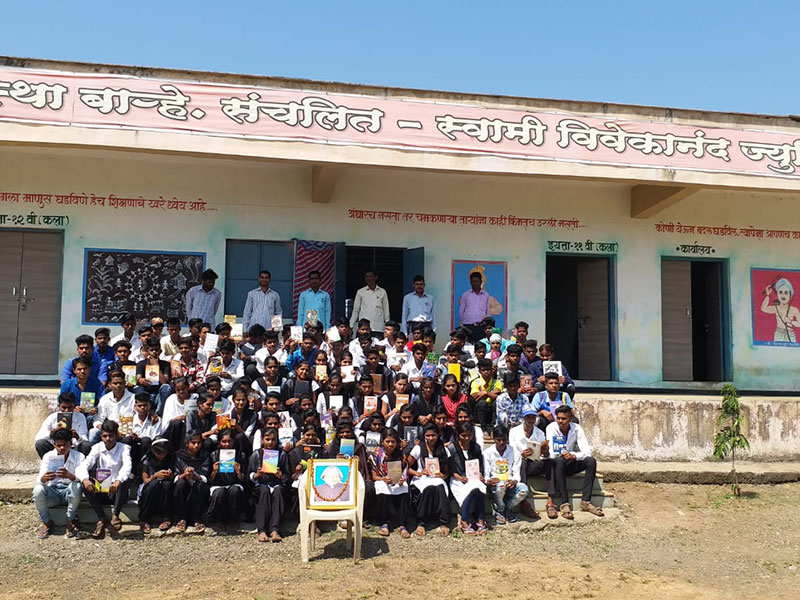

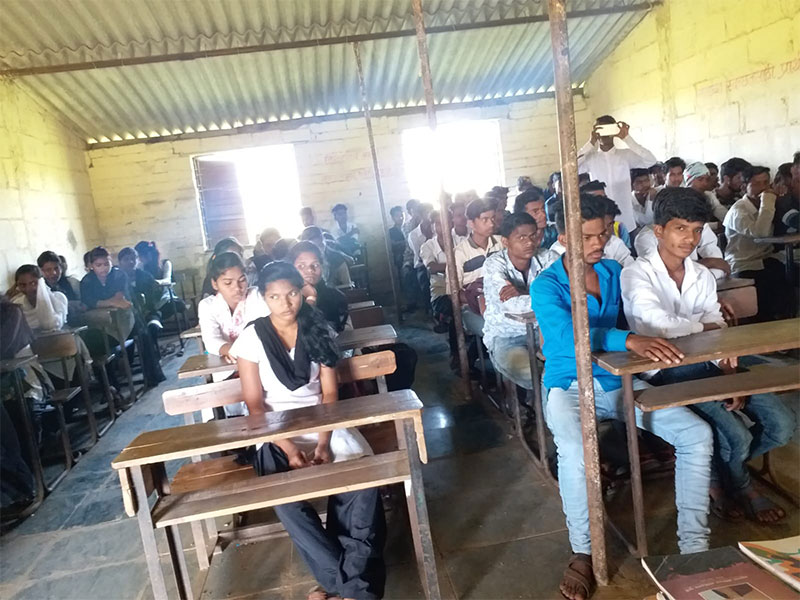
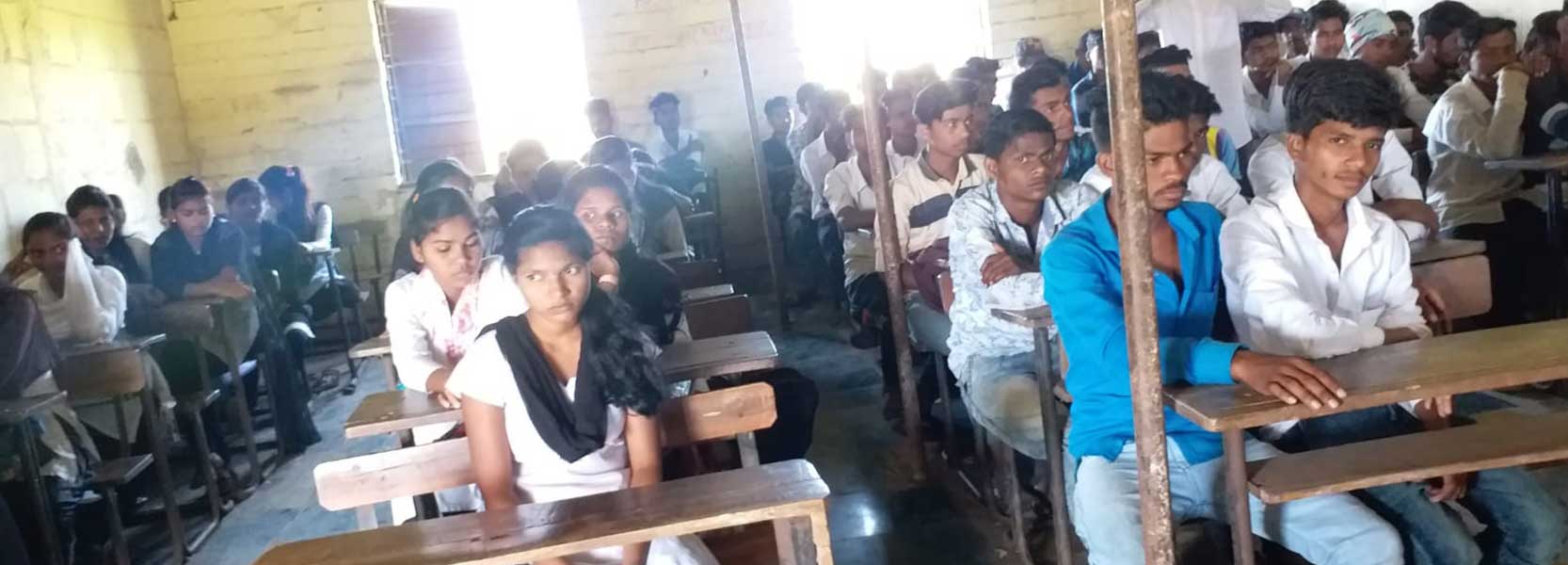
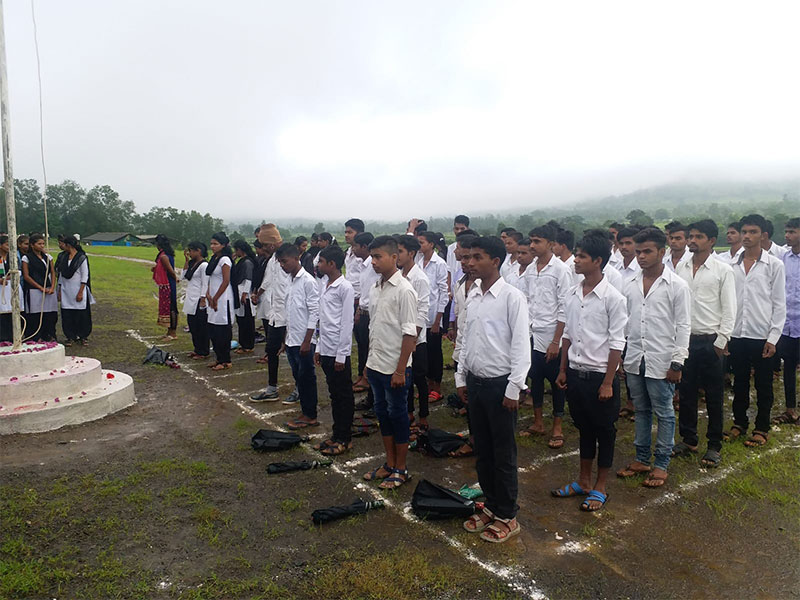
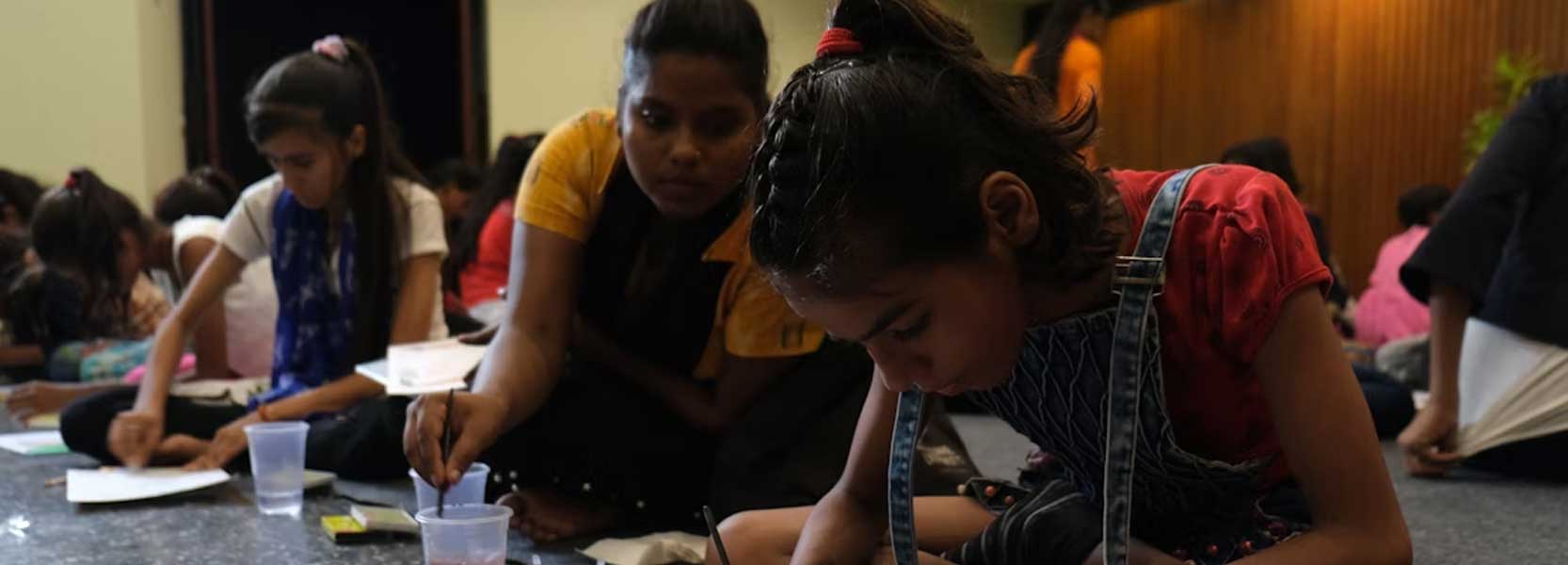
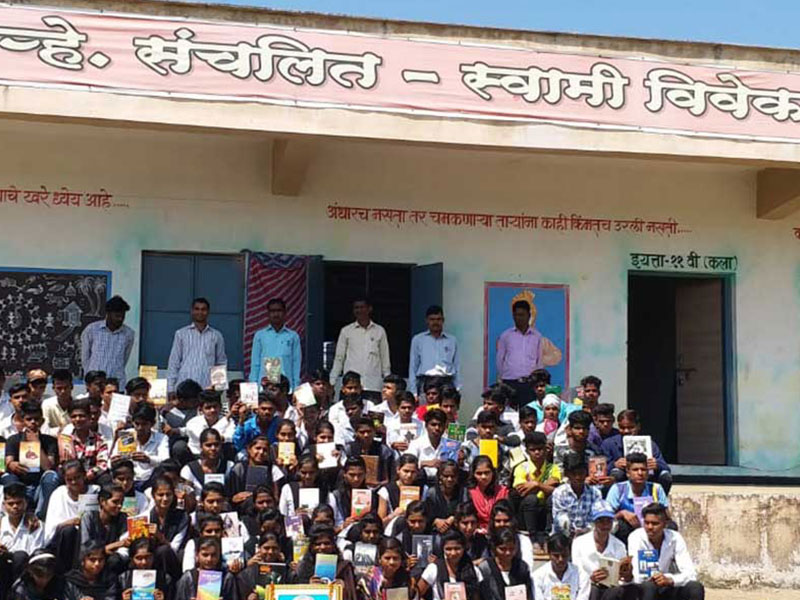
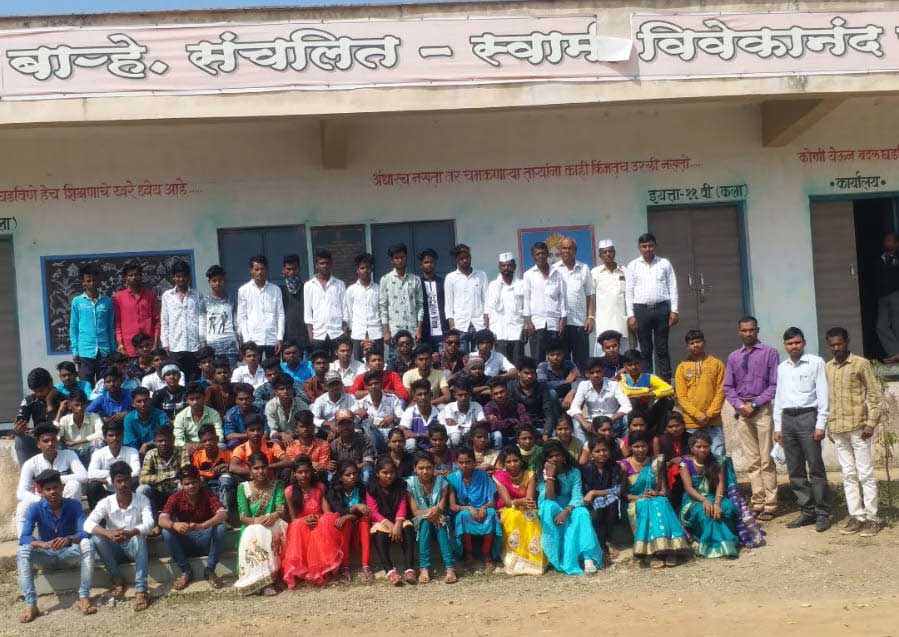
About Barhe
Barhe is a serene tribal settlement cradled in the rugged Sahyadri mountain ranges of Surgana Taluka, Nashik District. Nature here is breathtaking — lush green forests burst to life in the monsoon, the air remains crisp and pure year-round, and on clear nights the Milky Way feels close enough to touch. The hills echo with birdsong, while gentle streams weave life through the fertile valleys.
Life in Barhe follows the rhythm of nature. The community is closely knit — neighbours are like extended family, and age-old traditions are preserved with pride. Festivals fill the air with music, dance, and customs passed down for generations. There is no rush of city life here — only the harmony of people and nature coexisting.
Geography & Landscape
- Location: Southeast Surgana Taluka, near Peth Taluka.
- Terrain: Hilly and plateaued, surrounded by valleys and forests.
- Soil: Reddish, rocky; supports kharif crops like paddy, nagli, warai, bhagar, maize, and bajra.
- Climate: 2000–2500 mm rainfall; cool and humid during monsoon.
- Water Sources: Seasonal streams, rivers, wells, lakes, small dams, percolation ponds.
Flora & Fauna
Forests include teak, dhavada, tendu, moh, and karanja; rich in bamboo and medicinal plants.
Wildlife includes wild boars, jackals, monkeys, rabbits, and occasional leopards.
Community & Culture
Barhe is home to Konkan and Warli tribal communities who live in scattered settlements along hills and rivers. Agriculture and forest-based activities are the main livelihoods, with kharif farming and animal husbandry at the core.
Challenges
Life in Barhe still comes with steep hurdles:
- Poor connectivity – students often walk 2–11 km to school.
- Unreliable electricity – frequent outages, especially during monsoons.
- Economic hardship – subsistence farming and daily wage labor dominate.
- 800+ alumni remain unemployed despite completing education.
- Limited awareness of career options beyond farming.
- Inadequate infrastructure – lack of clean water, sports facilities, and sanitation.
The Turning Point – Swami Vivekananda Junior College
In 2008, Janalakshmi Adivasi Shikshan Sanstha founded Swami Vivekananda Junior College in Barhe. For the first time in six decades, students could complete Class 11 and 12 within their village.
This was a life-changing moment for hundreds of tribal youth. With Arts as the primary stream, first-generation learners began breaking the cycle of educational isolation. The college continues to empower rural youth, shaping them into confident, capable individuals.
About Us
Swami Vivekananda Junior College serves as a bridge between aspiration and achievement. For 17 years, we have ensured that financial hardship or remote location never hinders education. We provide free learning materials, career guidance, and also support women’s empowerment, sustainable livelihoods, and community development.
Our Mission
"In Barhe, education is not just a right — it is a lifeline."
We are committed to:
- Removing every barrier to higher education for tribal youth.
- Providing free books, uniforms, bags, and learning materials.
- Empowering families through skill and livelihood training.
- Instilling confidence and ambition in children who have never known opportunity.
At the heart of our mission is a belief that every individual — no matter where they are born — deserves the chance to learn, grow, and live with dignity.
Enrollment
Drop-out rate
Passing Rate in Board Exams
Graduates in Higher Education
Our Journey
What began as a single step in 2008 has grown into a thriving hub for education, skills, and community empowerment. Over the years, we have proudly:
- Provided free education to hundreds of students every year, opening doors to brighter futures.
- Built essential infrastructure – well-equipped classrooms, hygienic toilets, and a kitchen to serve nutritious meals.
- Established a Skill Training Center with computers and sewing machines to empower youth and women.
- Launched the Saafkins Initiative, producing reusable sanitary napkins to promote menstrual hygiene and create sustainable employment for women.
- Distributed free school essentials – bags, books, and uniforms – every year to support continued learning.
- Planted a Miyawaki forest and conducted environmental awareness programs to inspire care for our planet.
- Provided livelihood training in tailoring, handicrafts, and MSCIT computer courses, helping people become self-reliant.
Projects
At Swami Vivekananda Junior College, Barhe, our work goes beyond classrooms — we’re building opportunities that empower tribal youth, uplift families, and strengthen our community. These are the key initiatives currently in progress:
Expansion of the Skill Training Center
We are upgrading our training facilities to better equip students and community members for the future.
- Adding more computers, advanced sewing machines, and modern training tools.
- Introducing new vocational courses in digital literacy, computer applications, and handicraft production.
Establishing a Dedicated Livelihood Training Block
A new space designed to bridge the gap between education and employability.
- Additional classrooms and activity labs to meet growing demand.
- Specialized training units for MSCIT certification, tailoring, and driving courses.
- Driving program to include Japanese and German language training, preparing students for international job opportunities and higher earning potential.
100% Community Inclusion in Training
We believe learning is for everyone — not just students.
- Free or subsidized training for all eligible youth and women in Barhe and nearby villages.
- Flexible batch timings tailored for students, homemakers, and working adults.
Sustainable Menstrual Hygiene Initiative
Empowering women while improving health.
- Expansion of the Saafkins production unit to train and employ more local women.
- Distributing Saafkins to rural areas and spreading menstrual hygiene awareness.
Digital Empowerment of Students
Bringing the modern world to our rural classrooms.
- Providing every student with access to digital devices and internet facilities.
- Specialized IT training for better job prospects in both rural and urban markets.
Infrastructure for Holistic Development
A healthy, inspiring environment for learning.
- Additional toilets, kitchen facilities, and library resources.
- A dedicated recreation and sports zone for physical and mental well-being.
Strengthening Environmental Responsibility
Education rooted in sustainability.
- Expanding the Miyawaki Forest plantation to create a greener, climate-resilient campus.
- Launching a student-led Green Club to run environmental projects and awareness drives.
Career Pathway & Job Placement Programs
Turning education into real-world opportunities.
- Building partnerships with industries for internships, apprenticeships, and direct job placements.
- Hosting annual career fairs for students and alumni.
Get Involved
Ways You Can Make a Lasting Impact
Sponsor a Student
Gift a child a full year of education, including books, uniforms, and essential supplies.
Build Infrastructure
Help create classrooms, provide clean drinking water, or develop sports facilities.
Empower Women
Support tailoring units and Saafkins production, enabling women to earn with dignity.
Boost Skill Development
Equip young people with practical, job-ready skills for a brighter future.
Together, We Can Transform Lives
The milestones we dream of are closer than they seem — but only if we take each step hand in hand.
Your contribution will:
- Lay the foundation for classrooms.
- Open doors to learning.
- Shape the future of entire communities.
When you give, you’re not just funding a project — you’re igniting hope, strengthening families, and inspiring a whole village to dream bigger.
Because when we uplift one, we uplift all.
Board
Partner
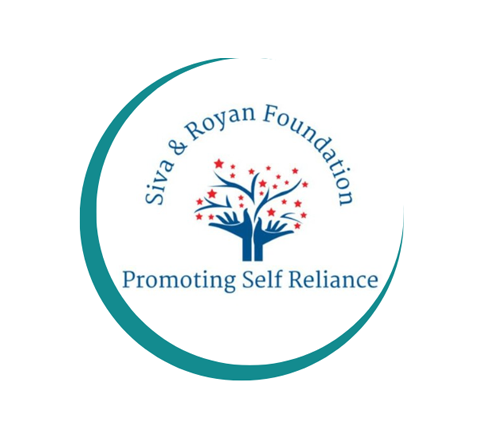
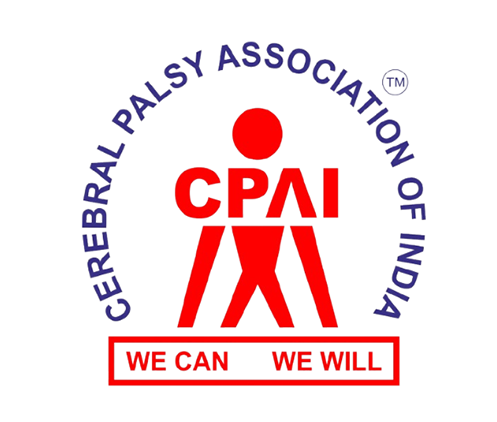
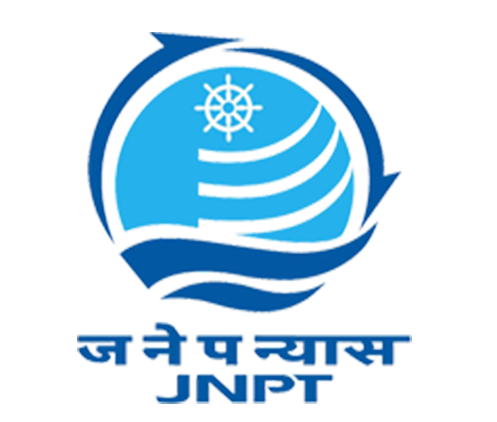
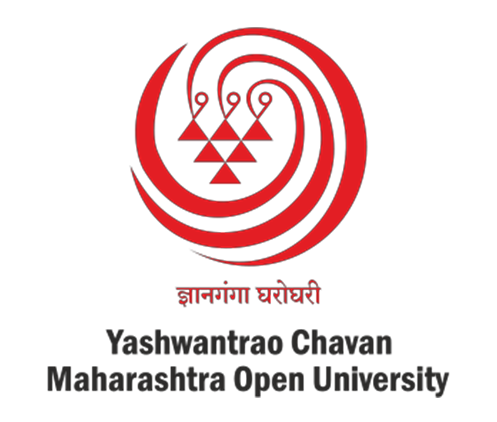
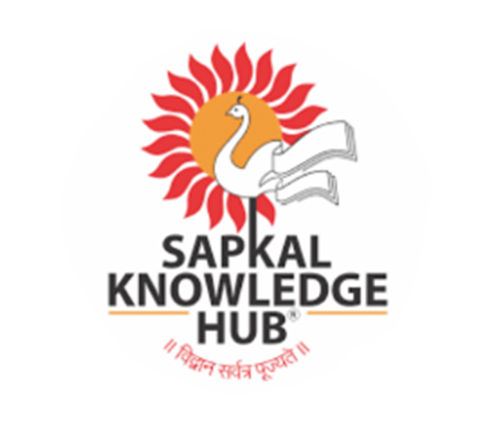
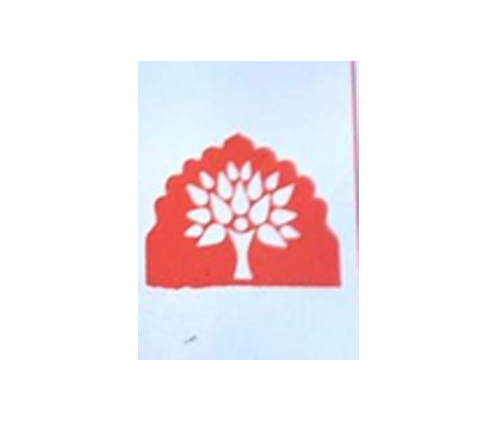
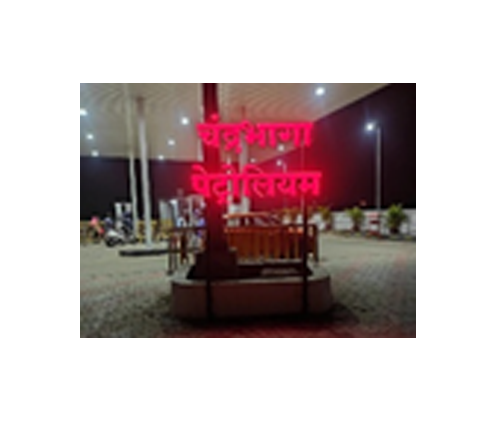
.jpg)
.jpg)
.jpg)
.jpg)